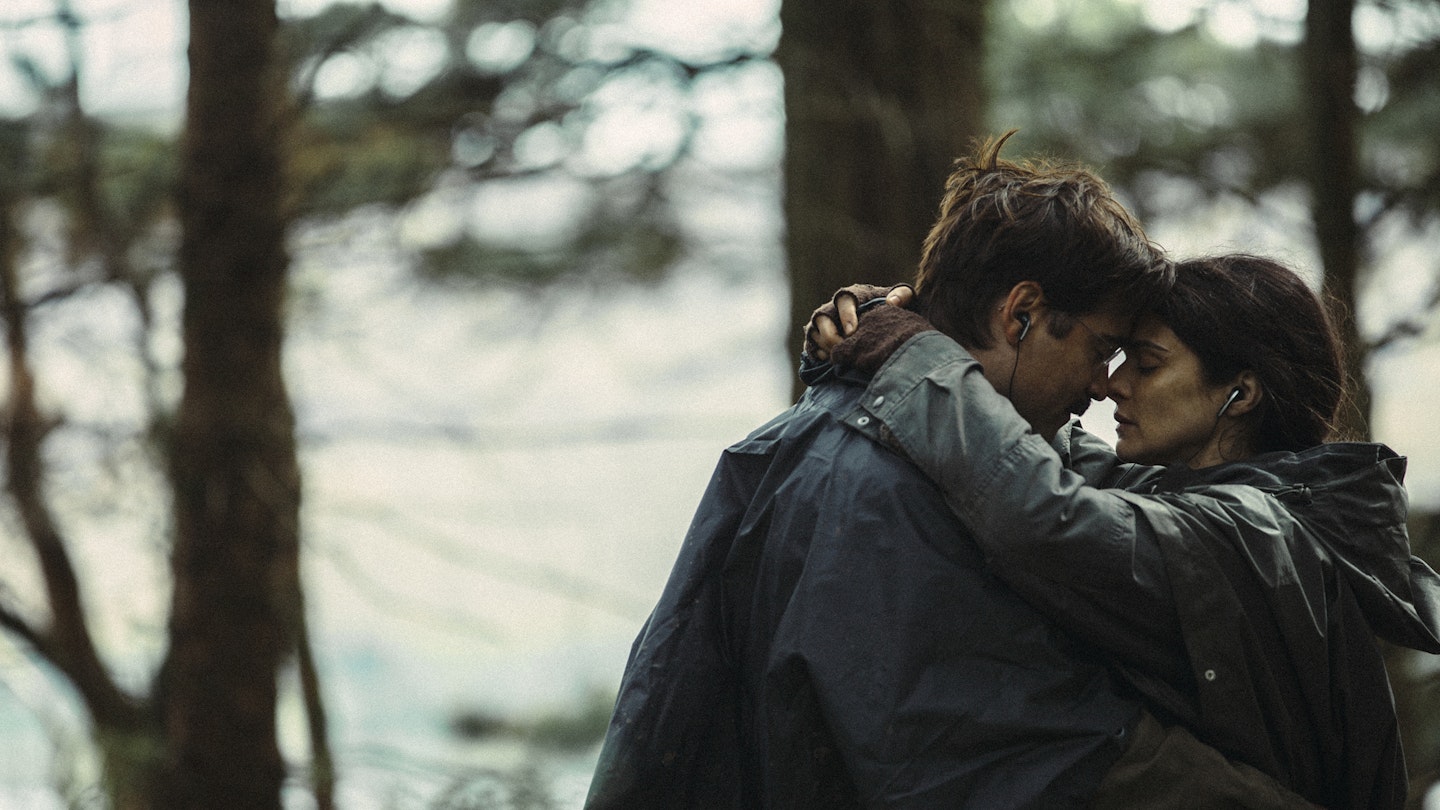It’s rare that two strong Palme d’Or contenders screen so early at Cannes, and this year’s awards buzz began with László Nemes’ Son Of Saul, an incredibly powerful Holocaust drama that has been accurately, if somewhat fantastically inappropriately, tagged “Gravity in Auschwitz” by the French press. This by no means suggests that the film is any way a lavish sci-fi spectacle, but it does go some way to explaining what an incredible technical achievement it is.
Following a brief description of the Sonderkommando – Jewish inmates who were given special privileges for assisting their Nazi commandants – it plunges us straight into the nightmare world of Saul (Géza Röhrig). This it does by focusing solely on Saul’s agonised face as he struggles to survive in the death camps, using Academy ratio to exclude all the images that a traditional war film would use as capital.
It’s a fascinating technique that summons the true horror of the Nazi death camps without exploiting it, giving us only glimpses of the dead and the mounds of possessions they leave behind, to be rifled through and stolen. In fact, this is precisely where the film begins; Saul is helping to shepherd his fellow, unwitting inmates into the showers, where he knows they will be gassed. And as he cleans up the debris he finds the corpse of his illegitimate son, provoking him to embark on a search for a rabbi who will recite the Kaddish and at least give this one murdered human being the dignity of a decent burial.
Comparisons have been made to Elem Klimov’s Come And See, and they are deserved, since this an incredibly profound, never mind ambitious film that, sadly, still has echoes in our supposedly more progressive and civilised world.
The other critical hit was Yorgos Lanthimos’ The Lobster, a much, much lighter yet still quite sad and often poignant film that backs up last year’s Wild Tales in establishing that there is a place for comedy in the Competition line-up. Following Lanthimos’s two Greek cult hits Dogtooth and Alps, The Lobster is shot in English and stars largely European actors, but this is no sell-out folly – in fact, Lanthimos’s abstract, dryly witty dialogue translates very well, as does the conceit. If you haven’t seen them, check out Dogtooth and Alps in that order, since to explain them is to undermine their originality and surprise. But in the case of The Lobster, the premise is brought to the surface very quickly, in a simple line of dialogue – the pleasure lies in seeing where it goes next.
It begins with Colin Farrell’s David, who has recently split up with his wife, going to stay at a spa hotel, where he must hand over all his clothes and belongings. There he has 45 days to find a partner whose personality matches his; if he doesn’t, he will be turned into an animal of his choosing and turned into the wild. It sounds ridiculous and it is, but Lanthimos’s masterstroke is make this dystopian sci-fi society seem very much like ours, a grey, humdrum world where single people spend their days hunting rogue “Loners” with tranquiliser guns.
To say more would spoil things; suffice to say, this is a true surrealist fantasy worthy of Dali and Buñuel, as well as being an existential statement that puts the fatalistic ramblings of Woody Allen’s Out Of Competition entry Irrational Man to shame. Joaquin Phoenix and Emma Stone just about keep this loose adaptation of Crime And Punishment ticking over, conspiring to help us forget that Allen has made this film twice before, in Crimes And Misdemeanours and** Match Point**.
This time, it concerns a boozy philosophy professor (Phoenix) who gets bored of Kant and tries to express himself to the full by carrying out the perfect murder. As it can go only one of two ways – will he get away with it or not? – there’s not a hell of a lot of suspense here, but Stone is very good as the bright pupil who starts to realise her idol has feet of clay, and Parker Posey shines as a fellow academic’s floosie wife.
Another unlikely academic is Matthew McConaughey, who plays a physics teacher in Gus Van Sant’s slow, tedious and finally terrible melodrama The Sea Of Trees, in which McConaughey's character flies to Japan to kill himself at a notorious woodland area, for reasons he will helpfully remember in flashback. While remembering, he meets a Japanese businessman whose suicide attempt has failed, leaving him floundering in the wilderness. The two men bond and, infused with a new will to live (a privilege we never get), start to wonder how and when they will get out of the forest. That feeling is contagious; as the story progresses, coincidences pile up to the point of ridiculousness, bashed home with a horribly intrusive score that’s at odds with the luminous cinematography that is its one saving grace.
If this wins anything at all next week, there will be rioting on the streets of Cannes…
